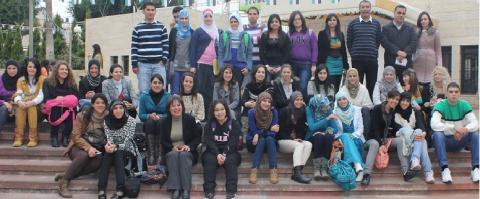Israel to open first public college in Arab town
Prof. Manuel Trajtenberg, chairman of the Planning and Budgeting Committee of the Council for Higher Education, told Haaretz: “When we came into office we said we wanted to make higher education accessible to the Arab sector as a national mission.”
According to Trajtenberg, the college is “not an Arab academic institution, because there is no such thing as a Jewish or Arab academic institution, but location is an important matter because it allows accessibility to the adjacent population.”
Trajtenberg said that the council concluded 18 months ago that there was a need for an academic institution in an Arab community, and began talks with the existing college in Nazareth. The council took into consideration that between 8,000 and 10,000 Arab students study abroad each year, mainly in Jordan, Trajtenberg noted.
An initiative to establish a Nazareth extension for Texas A&M University, under the auspices of former President Shimon Peres and Texas governor Rick Perry, never got off the ground after problems emerged following a much publicized signing of an agreement.
Trajtenberg said that the fact that the college is under the aegis of the University of Haifa is the model for all accredited colleges established in Israel. The college is expected eventually to offer degrees in computer sciences, nursing, economics and accounting, with an emphasis on employable professions.
The council’s chairman, Education Minister Shay Piron, said the establishment of the first publicly funded college in Nazareth is “good news for the Arab sector and its young people, because it makes higher education accessible to them and increases their chances of employment.”
Dr. Suher Basharat, dean of students at the college, confirmed that the official language of instruction would be Hebrew but that “our students will get help in learning Hebrew as part of their studies. This is an unusual move toward Arab society in these times, and can be a point of light in the darkness we are in.”
The chairman of the college’s board, Mazen Kofti, said the intention was “to open the college not only to Arab students but to attract students from all over the region and even from abroad,” adding that he hoped the college would become independent of the University of Haifa within three to five years.
Yarden Skop

